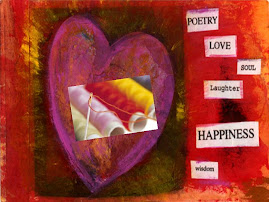All Rights Reserved
One of the hardest things we ever do is to leave some place or someone we love. When I was honored for 25 years on my job, I got my first inkling that retirement might not be that easy for me. Even though I had written most of it myself, my contribution to the organization impressed me when I heard someone else read it aloud. I hadn’t realized I was having so much fun and making so much family. (I envisioned the last episode of The Mary Tyler Moore Show, inching in an ensemble hug to the nearest box of tissues, shuffling and sniffling ourselves toward door. I had a hard time imagining closing it and shutting off the lights for the last time.)
Rarely is it the best time to leave anything or anyone in anger. The best time is when it’s time.
Whether it’s a gold watch, wedding rings, or the keys to a house you have long called home, these are symbols of the most enduring aspects of our lives. They are hard to let go.
We live in times that demand us to live—and let go—at a breakneck pace. This is coupled with an interesting demographic. A huge portion of human beings living today are baby boomers, born after World War II between 1946 and 1964. Those of us on the earlier end of that time span have experienced a schizophrenic exposure to life. First, we’re the only generation with baby in our name, which speaks of our resistance toward maturity. Second, talk about change; our lives have spanned some wild fluctuations in society’s values.
We grew up with Ozzie and Harriet and Leave It to Beaver. Many Moms stayed at home and baked cookies. They wore dresses and pumps to vacuum. We were always Making Room for Daddy. Fathers were “it,” down to our mothers being called Mrs. His First and Last Name. We were respectful, and we didn’t talk back.
As we became teenagers and young adults, everyone we ever believed in was murdered in our living rooms on prime time, as we watched helplessly on our still relatively new color TVs--first President Kennedy, then Martin Luther King. By the time Bobby Kennedy was killed, disillusionment was a national disease and what’s this world coming to was our mantra.
But we hadn’t seen nothin’ yet. We came of age in the ‘70s and some of us became the counterculture. We went to Woodstock, wore flowers in our hair, protested a war we thought was senseless, and envisioned a peaceful new world.
Ten years later, most of us were steeped in materiality and another pendulum swing. The ‘80s were about money and prestige, a sojourn to a place many of us had never yet been—those of us who spent most of our earlier lives focusing on very different kinds of values besides the price of property or BMWs.
As each decade turned, then a millennium, we found ourselves leaving behind old visions of the future we pictured as children. Technology changed everything. Now our community consists of our Facebook and email pals who may live across the globe. (Try borrowing a cup of sugar from that neighbor!) Often we barely know the folks next door, but we know intimately people we have never met in person.
Inside us, we still picture Donna Reid and Danny Thomas as our marriage models. In reality, staying married is a crapshoot—no better than a 50/50 proposition. We endured cultural revolutions, military wars, and wars of values within ourselves; and if we grew, by now we have arrived at some semblance of a happy medium.
Here’s an exercise: Write down all the major changes that have occurred in your lifetime, just off the top of your head. No matter how young or old you are, you will be amazed. To evolve that quickly, you can’t keep hanging on.
Life, from our first breath, is about surrendering the current moment for the next moment and all the promise and potential each one holds. Paradoxical as it is, you only get more by giving up what you’ve got.
In the most personal and painful losses, it is comforting to know:
Love never dies; it only changes form like anything in nature, including us.
No matter how sad the ending, there is always a new beginning that calls us from the ashes of what must die to make room for new life. This is how we begin and end, and with practice in-between, we can make this chunk of our own evolution a little slice of heaven on earth before we shoot back to the stars.
~~~
Photo credit: TANGO COUPLE © Elultimode... Dreamstime.com
For more on this topic, visit this thoughtful post on Joy Frequencies, What Needs to Be Done.




















